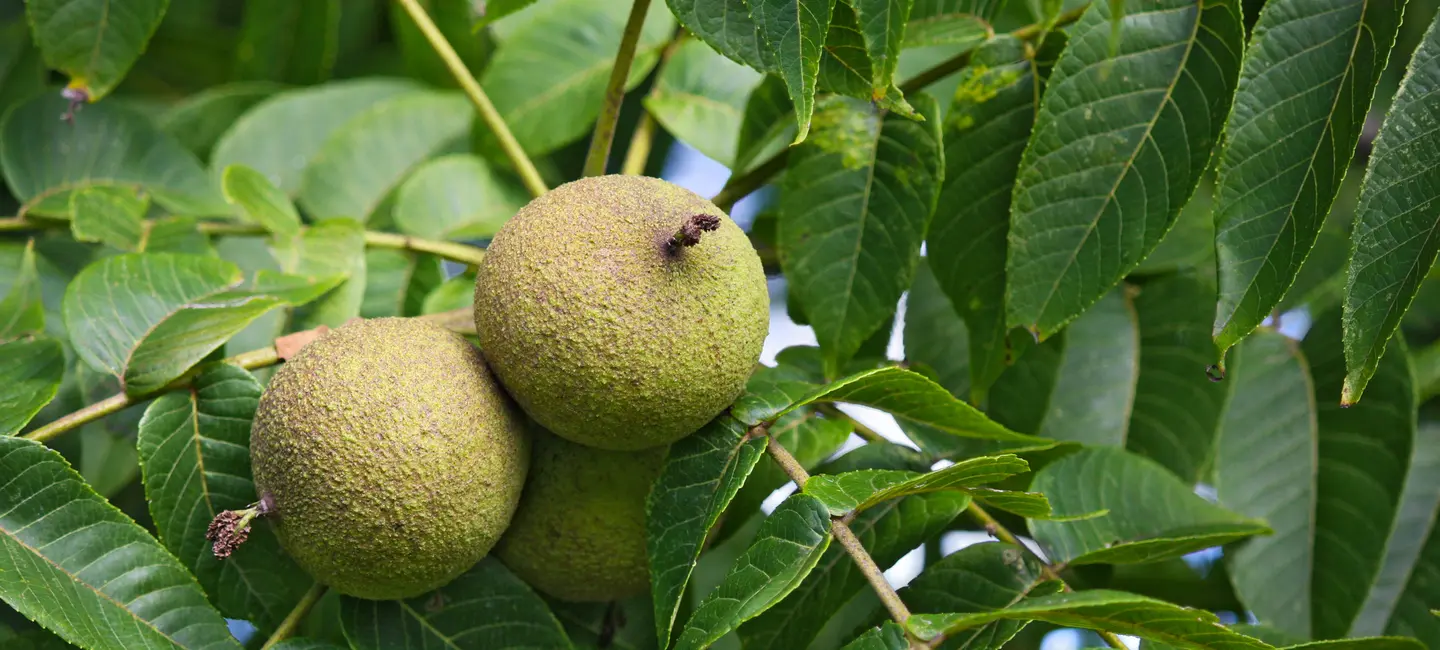
Black walnut (Juglans nigra) is a tree native to the US that's harvested for its wood and edible nuts. The tree bark has been used in traditional medicine.
Black walnut contains high concentrations of chemicals called tannins, which can reduce pain and swelling and dry up body fluids such as mucous.
People use black walnut to lower the risk of heart disease, for skin wounds, and for other conditions, but there is no good scientific evidence to support these uses.
Tree nuts, including black walnut, are considered major food allergens in the US. Don't confuse black walnut with English walnut. There are not the same.
Is It Effective?
There is interest in using black walnut for a number of purposes, but there isn't enough reliable information to say whether it might be helpful.
Is it Safe?
When taken by mouth: The fruit (nut) of black walnut is commonly consumed in foods. But the bark is possibly unsafe. Taking the bark daily might increase the risk for tongue or lip cancer. There isn't enough reliable information to know if the leaf or the shell of the nut (hull) are safe to use as medicine. These parts of the plant contain chemicals called tannins. Taking too much tannin can cause stomach upset and kidney and liver damage.
When applied to the skin: Black walnut is possibly unsafe. It contains a chemical called juglone that can irritate the skin.
Special Precautions & Warnings:
Pregnancy and breast-feeding: The fruit (nut) of black walnut is commonly consumed in foods. But the bark is possibly unsafe. Don't take black walnut bark by mouth or apply it to the skin. There isn't enough reliable information to know if black walnut leaf or shell is safe to use when pregnant or breast-feeding. Stay on the safe side and avoid use.
Allergies to peanuts and tree nuts: People with peanut allergies are more likely to be allergic to nuts called "tree nuts." Black walnut is a tree nut. People who are allergic to one tree nut are also more likely to have an allergy to at least one other tree nut.
It is not known if Black Walnut interacts with any medicines. Before taking Black Walnut, talk with your healthcare professional if you take any medications.
There are no known interactions with herbs and supplements.
Black walnut contains tannins. Tannins can reduce the absorption of nutrients from foods, but it's not clear if this is a big concern.
Black walnuts are commonly consumed in foods. As medicine, there isn't enough reliable information to know what an appropriate dose of black walnut might be. Keep in mind that natural products are not always necessarily safe and dosages can be important. Be sure to follow relevant directions on product labels and consult a healthcare professional before using.
Carya, Carya basilike, Carya persica, Green Black Walnut, Green Walnut, Juglans nigra, Jupiter's Nuts, Nogal Americano, Nogal Negro, Nogueira-preta, Noix, Noix de Jupiter, Noix de Perse, Noix Verte, Noyer d'Amérique, Noyer Noir, Noyer Noir Américain, Nux persica, Nux regia, Schwarze Walnuss, Walnoot, Walnut.
Information on this website is for informational use only and is not intended to replace professional medical advice, diagnosis, or treatment. While evidence-based, it is not guaranteed to be error-free and is not intended to meet any particular user’s needs or requirements or to cover all possible uses, safety concerns, interactions, outcomes, or adverse effects. Always check with your doctor or other medical professional before making healthcare decisions (including taking any medication) and do not delay or disregard seeking medical advice or treatment based on any information displayed on this website.
© TRC Healthcare 2024. All rights reserved. Use and/or distribution is permitted only pursuant to a valid license or other permission from TRC Healthcare.
